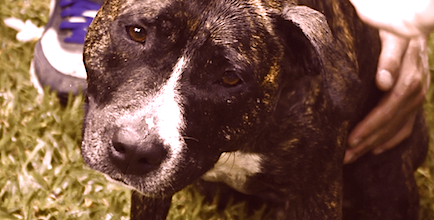Can Dogs Eat Avocado? Everything You Need To Know.
Key Points: Avocado: the creamy Californian toast toping. As delicious as it is fickle for us humans. But can dogs eat avocado? The short answer is a bit more complicated than a simple “yes” or “no.” While dogs can technically eat avocado, there are some crucial and cautionary warnings to consider before sharing this treat…

- Dogs can eat avocado in moderation, but avoid the pit, skin, and leaves due to persin.
- It’s packed with healthy fats, vitamins, and antioxidants, but too much can upset their stomach.
- Serve plain, mashed avocado or small slices. Skip guacamole and large amounts of avocado oil. Always watch for signs of discomfort.
Avocado: the creamy Californian toast toping. As delicious as it is fickle for us humans. But can dogs eat avocado?
The short answer is a bit more complicated than a simple “yes” or “no.” While dogs can technically eat avocado, there are some crucial and cautionary warnings to consider before sharing this treat with your beloved pet.
In this comprehensive guide, we’ll explore the nutritional aspects and potential risks associated with feeding avocados to dogs.
- Unlocking the Nutritional Value of Avocado
- Safety Considerations When Feeding Avocado to Dogs
- Persin Poisoning: How to Spot it
- Which Dogs Should Avoid Avocado?
- Could My Dog Be Allergic to Avocado?
- So, Can My Dog Eat Avocado?
- How Often Can I Give My Dog Avocado?
- What If My Dog Eats Too Much Avocado?
- How to Serve Avocado to Your Dog
- Can Dogs Eat Guacamole?
- Can Dogs Eat Avocado Oil?
- Frequently Asked Questions (FAQ)

Don’t leave your pet’s safety to chance
Sign up for Petful recall alerts today.

Unlocking the Nutritional Value of Avocado
Before diving into the do’s and don’ts, let’s examine the nutritional profile of avocados:
- Healthy Fats: Avocado is famous for its monounsaturated fats, which can be beneficial for heart health and contribute to your dog’s overall well-being.
- Vitamins and Minerals: Avocado contains essential nutrients such as vitamins K, E, C, and B6, as well as folate and potassium. These vitamins and minerals play roles in bone health, skin condition, and immune support.
- Dietary Fiber: Avocado is a good source of dietary fiber, which can aid in digestion and help regulate bowel movements.
- Antioxidants: This fruit is rich in antioxidants like lutein and zeaxanthin, which can potentially benefit your dog’s eye health.
Safety Considerations When Feeding Avocado to Dogs
While avocados offer numerous potential health benefits, it’s crucial to be aware of safety precautions:
- The Pit and Skin: The pit and skin of an avocado contain a substance called persin, which can be toxic to dogs in large quantities. Ingesting the pit can pose a choking hazard, and the skin is generally tough and not easily digestible.
- Moderation: As with any treat, avocados should be fed to dogs in moderation. They should complement your dog’s regular diet rather than replacing it.
- Fatty Content: Avocado is relatively high in fat, which can be problematic if your dog has a sensitive stomach or is prone to pancreatitis. In such cases, it’s best to avoid avocado altogether.
- Serving Style: When offering avocado to your dog, it should be served plain and without any additional ingredients, such as salt, spices, or sauces. These additives can be harmful to your pet.
Persin Poisoning: How to Spot it
Persin is a fungicidal toxin present in avocados, particularly in the skin, pit, and leaves of the fruit. While it is generally harmless to humans, it can be harmful to animals such as dogs and especially to birds and livestock.
Symptoms of Persin Poisoning in Dogs
While dogs are somewhat more resistant to persin than some other animals, they can still experience symptoms of toxicity if they consume enough of it. The symptoms of persin poisoning in dogs may include:
- Vomiting
- Diarrhea
- Lethargy
- Abdominal Pain
- Lack of Appetite
In severe cases, or in animals more sensitive to persin, additional symptoms such as respiratory distress, fluid accumulation around the heart, and even death can occur, although this is rare in dogs.
How to Spot Persin Poisoning
Identifying persin poisoning in dogs involves observing the above symptoms, especially after known consumption of avocado parts that contain persin (skin, pit, leaves). If a dog exhibits any signs of discomfort or illness after consuming avocado, it is essential to monitor them closely and seek veterinary advice.
Treatment for Persin Poisoning
If you suspect that your dog has consumed a harmful amount of avocado or is showing symptoms of persin poisoning, you should:
- Contact Your Veterinarian: Immediate consultation with a veterinarian is essential to determine the severity of the poisoning and the appropriate course of action.
- Induce Vomiting (If Advised): Depending on the amount consumed and the time elapsed, the veterinarian might advise inducing vomiting, but only under their guidance.
- Provide Supportive Care: Supportive care, such as keeping the dog hydrated and monitoring vital signs, is essential. Your vet may also administer activated charcoal to help absorb any remaining toxin.
- Monitor for Complications: The veterinarian may recommend monitoring for complications and providing additional supportive care as needed, such as IV fluids or medications to control symptoms.
- Withhold Food: Temporarily withholding food may be advised to allow the gastrointestinal tract to recover, followed by a bland diet.
It is crucial never to attempt to treat persin poisoning – or any poisoning – at home without first consulting a veterinarian. Inappropriate treatment can exacerbate the condition and lead to more severe complications.
Prevention
To prevent persin poisoning, keep avocados and guacamole out of your dog’s reach, avoid feeding them any parts of the avocado plant, and monitor them when they are around avocado trees if you have them in your yard.
Which Dogs Should Avoid Avocado?
While many dogs can tolerate small amounts of avocado, some situations warrant caution or complete avoidance:
- Dogs with Sensitive Stomachs: Dogs with a history of digestive issues may not tolerate avocado well due to its fat content. Monitor your dog for any signs of discomfort or digestive upset.
- Dogs Prone to Pancreatitis: Avocado’s fat content can potentially trigger pancreatitis in dogs prone to this condition. It’s best to avoid avocado if your dog has a history of pancreatitis.
- Small Dogs and Choking Hazard: The avocado pit is a choking hazard for small dogs. If you decide to offer avocado, ensure it’s sliced or mashed to prevent choking.
- Allergies and Sensitivities: As with any food, some dogs may have allergies or sensitivities to avocados. Watch for any adverse reactions when introducing avocados to your dog’s diet for the first time.
Could My Dog Be Allergic to Avocado?
While allergies to avocados are relatively rare in dogs, they can occur. Signs of an allergic reaction or sensitivity may include:
- Skin Issues: Itchiness, redness, rashes, or hives can manifest as a result of an allergic reaction to avocado.
- Digestive Upset: Vomiting, diarrhea, or stomach discomfort may occur in dogs with avocado sensitivities.
- Facial Swelling: Swelling around the eyes, lips, ears, or throat can indicate an allergic reaction.
- Respiratory Distress: Coughing, wheezing, or difficulty breathing may be symptoms of a severe allergic reaction, particularly if there’s swelling in the throat.
- Behavioral Changes: Some dogs may become anxious or exhibit unusual behaviors when experiencing discomfort or an allergic reaction.
What to Do if You Suspect an Allergy:
- Remove the Allergen: If you suspect that avocado is causing the issue, stop feeding it to your dog and avoid any treats or foods containing avocados.
- Consult Your Veterinarian: If your dog shows signs of an allergic reaction, consult with a veterinarian. They can provide guidance on treating immediate symptoms and discuss potential allergy tests or dietary changes.
- Allergy Testing: For recurring allergic reactions, your vet might recommend allergy tests to identify specific allergens affecting your dog.
- Monitor for Cross-Contamination: Ensure that other foods or treats aren’t contaminated with avocados if you believe they’re causing an allergic reaction.
So, Can My Dog Eat Avocado?
In moderation, dogs can enjoy avocados, provided you take necessary precautions and consider your dog’s individual health and sensitivities. While avocados offer potential health benefits, it’s important to feed them responsibly.
Ultimately, while avocados can offer some nutritional benefits to dogs, the risks involved may outweigh the rewards, especially when alternative sources of those nutrients are available.
How Often Can I Give My Dog Avocado?
The frequency and quantity of avocado should be based on your dog’s size, weight, and overall health. Avocado is not a primary dog food and should be considered a treat. Typically, treats should make up no more than 10% of your dog’s daily caloric intake.
It’s crucial to note the importance of portion size. Even for dogs who can safely consume avocado, only small amounts should be given, especially initially. For most dogs, offering avocado once or twice a week in small amounts is a reasonable guideline. However, every dog is different, so closely monitor your dog’s reaction to avocado and adjust the frequency and quantity accordingly.
What If My Dog Eats Too Much Avocado?
Consuming too much avocado can lead to adverse effects, primarily due to its fat content. Signs of avocado overconsumption in dogs may include:
- Gastrointestinal Distress: Vomiting, diarrhea, stomach pain, or loss of appetite are common symptoms of overeating avocado.
- Lethargy: Dogs may appear tired or less active than usual due to discomfort caused by excessive avocado consumption.
- Behavioral Changes: Some dogs might exhibit anxious behavior or other changes when experiencing gastrointestinal discomfort.
What to Do:
- Observe Your Dog: Closely monitor your dog for any signs of distress or discomfort if they’ve consumed too much avocado.
- Withhold Food: If your dog shows signs of gastrointestinal upset, withhold food for 12-24 hours to allow the stomach to settle. Ensure your dog has access to fresh water.
- Veterinary Consultation: If symptoms persist or if your dog appears to be in distress, contact your veterinarian immediately for advice and possible treatment.
- Adjust Diet: Once symptoms subside, feed your dog a bland diet for a day or two (such as boiled chicken and rice) before gradually reintroducing their regular food.
Prevention:
- Moderation: To prevent overconsumption, offer avocado to your dog in moderation and monitor them while eating.
- Storage: Store avocados and other foods out of your dog’s reach to avoid accidental overconsumption.
How to Serve Avocado to Your Dog
If you decide to offer avocado to your dog, here are some safe and delightful ways to serve it:
- Plain and Mashed: Mash a small amount of ripe avocado and serve it plain as a creamy treat or mix it with your dog’s regular meal. Ensure there are no skin or pit remnants.
- Avocado Slices: Offer small, bite-sized slices of ripe avocado as a healthy and satisfying snack. Make sure to remove the skin and pit.
- Avocado-Infused Toys: You can stuff small pieces of avocado into your dog’s treat-dispensing toys for a fun and engaging playtime activity.
Other Avocado Treats:
If you’re looking for creative ways to incorporate avocado into your dog’s diet, consider these delicious ideas:
- Avocado and Banana Treats: Mix mashed avocado with mashed banana to create homemade dog treats that are rich in nutrients and flavor.
- Avocado and Yogurt Frozen Treats: Blend ripe avocado with plain, unsweetened yogurt and freeze the mixture in small portions for a refreshing summer treat.
- Avocado and Chicken Bites: Combine small pieces of cooked chicken with diced avocado for a tasty and protein-packed snack.
Remember that moderation is key when introducing avocados to your dog’s diet. Always consult with your veterinarian if you have any concerns about feeding new foods to your pet.
Can Dogs Eat Guacamole?
Feeding guacamole to dogs is not recommended. Guacamole typically contains ingredients that can be harmful to dogs, such as:
- Onions and Garlic: These are toxic to dogs and can cause gastrointestinal irritation, red blood cell damage, and anemia.
- Salt: High salt intake can lead to increased thirst, urination, and risk of sodium ion poisoning in pets.
- Spices and Citrus: Many guacamoles have added spices, lime, or lemon juice, which can cause stomach upset in dogs.
- Avocado: As discussed earlier, the avocado itself can be problematic due to the presence of persin, especially if the guacamole contains pieces of avocado skin or has been made with overly ripe avocados where persin levels might be higher.
While the avocado pulp in guacamole may not be particularly toxic to dogs in small amounts, the combination of harmful ingredients typically found in guacamole makes it an unsuitable and potentially dangerous treat for dogs. If a dog consumes guacamole, especially in large amounts or repeatedly, it would be wise to monitor them closely for any signs of distress and contact a veterinarian if any concerning symptoms appear.
Can Dogs Eat Avocado Oil?
Yes, dogs can generally consume avocado oil safely, and it can be a good source of healthy fats for them. Avocado oil is made from the flesh of the avocado, which contains the least amount of persin, the toxin found in avocados. Therefore, avocado oil is typically safe and non-toxic to dogs.
Avocado oil is rich in monounsaturated fats, which can support skin and coat health, and it contains antioxidants, which can help combat oxidative stress. Additionally, it can be a good source of vitamins E and K.
Considerations:
- Moderation: Like any supplement or treat, avocado oil should be given in moderation. Too much fat, even healthy fat, can lead to obesity and other health issues, such as pancreatitis, especially in dogs prone to these conditions.
- Calories: Avocado oil is calorie-dense, so it’s important to consider the additional calories in your dog’s overall diet to prevent overfeeding.
Quality: Choose high-quality, pure avocado oil without additives, as some products may contain added ingredients that are not safe for dogs.
Frequently Asked Questions (FAQ)
Are avocados safe for dogs?
Avocados contain persin, a toxin that can be harmful to some animals, but dogs are generally more resistant to it and can tolerate small amounts of avocado flesh. However, the pit, skin, and leaves have higher concentrations of persin and can also pose a choking hazard, so they should always be avoided.
Can dogs eat guacamole?
No, dogs should not eat guacamole because it often contains ingredients like onions, garlic, salt, and spices, which are toxic to dogs. Even if it’s plain, guacamole may still contain too much avocado, which can cause stomach upset due to its high fat content.
What if I accidentally gave my dog avocado?
If your dog eats a small amount of plain avocado flesh, they will likely be fine, but monitor them for any signs of stomach upset. If they consume the pit, skin, or a large amount of avocado, contact your vet, as it could lead to choking, intestinal blockage, or toxicity issues.
What are the signs of avocado poisoning in dogs?
Symptoms of avocado poisoning in dogs can include vomiting, diarrhea, abdominal discomfort, and, in rare cases, difficulty breathing or fluid buildup around the heart. If you notice any concerning symptoms, seek veterinary attention immediately.
Curious about what other foods dogs can eat? Check out these related articles below:







